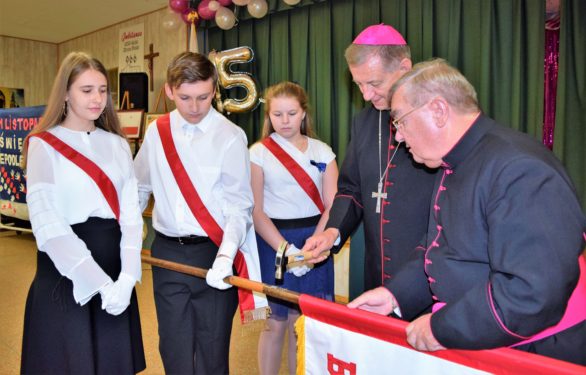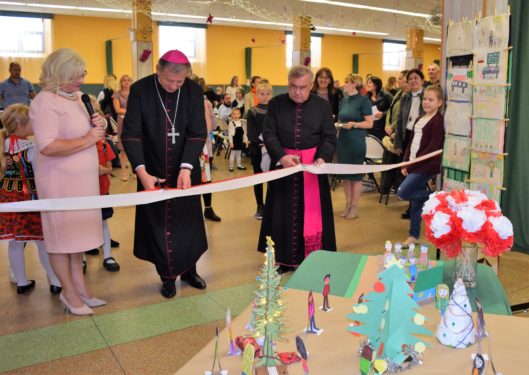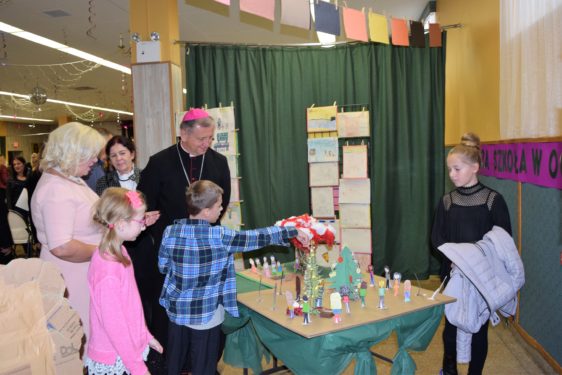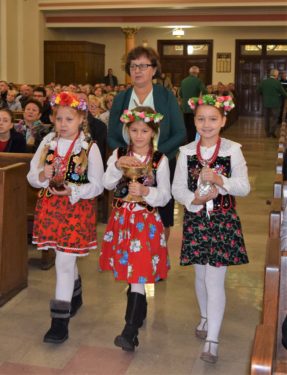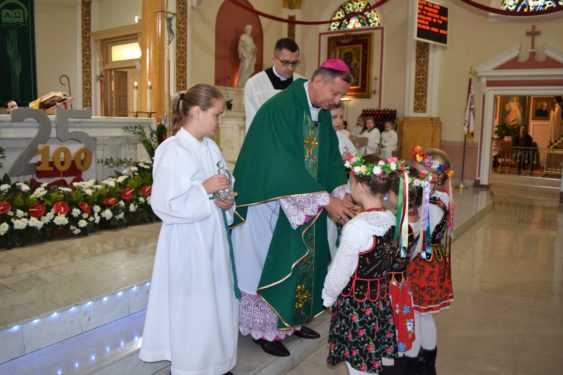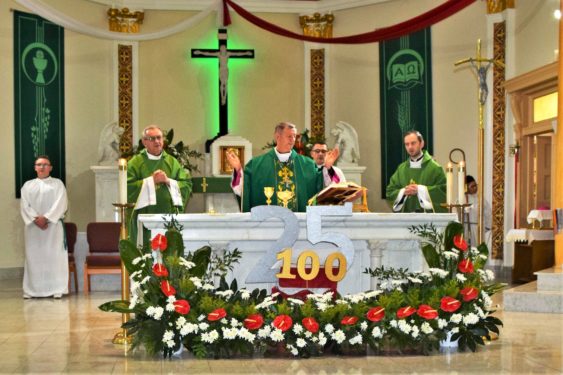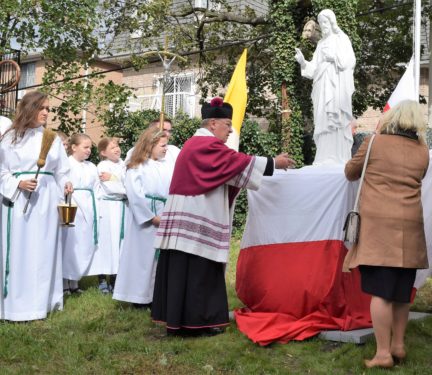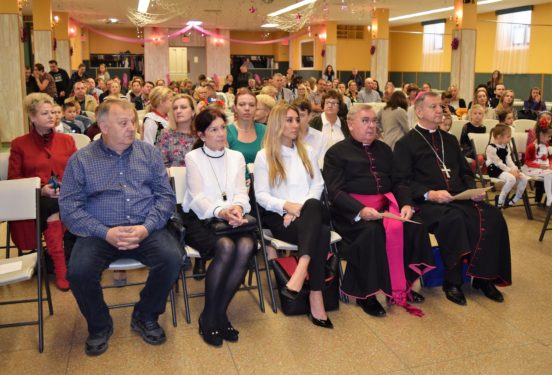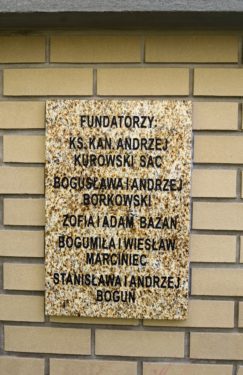A little Polish school in Borough Park, which started off as a religious education program for St. Frances de Chantal parish, has over the past 25 years gained international renown, even performing a concert for Pope John Paul II in the Vatican.
Polish Bishop Józef Guzdek praised the schools during the jubilee thanksgiving Mass for which he was the main celebrant at St. Frances de Chantal Church. The Mass was also in thanksgiving for the 100th anniversary of Poland regaining its independence.
It is through the dedication of parents, who taught their children Polish language, culture and religion that Polish heritage was able to be preserved even through 123 years of occupation. It is that same spirit of dedication, the bishop said, that is present at the Gen. Kazimierz Pulaski Polish Supplementary School. The school is named after the Polish general who, after defending Poland, came to America to help with the U.S. independence war.
The families dedication is so strong that it translates directly to the life and strength of the parish said Canon Andrzej Kurowski, S.A.C., pastor of St. Frances. The parish and the church work together, he said, guiding families just as parents guide children.
“The Church is the father – it gives direction,” the pastor said. “The school is like the mother – it nurtures.”
The cooperation between school and church is evident in any special Mass the parish is involved with, whether that be at St. Frances or at diocesan events. The children of the school are always present and visible. Students put on Good Friday and Christmas plays for the parish. And in turn, the parish nurtures their religious education and celebrates a special Mass for them every month.
Of course where there are children, there are parents. Thanks to the school, the parish of St. Frances of Chantal is one filled with families, Canon Kurowski said, ensuring a strong future for generations to come.
A strong future is the reason Beata Kruzel first sent her three children to the school and then, when her youngest daughter was in the high school program, became a teacher herself. It was not always easy, getting the family to school on Saturdays.
“It’s worth doing,” she said.
She said it is important for the future of Polonia to keep the culture, language and traditions alive and it is important for the future of the U.S., as well.
“We live in this country, which is made up of immigrants,” she said. “It is not a uniform country, but it is our one country. Every nationality, each culture brings forth something.”
To be able to go into the future, one must first know where one comes from. Everyone should know who their ancestors are and how they got here, she said.
Attending the Saturday school also brings many practical benefits to the students. For example, Kruzel’s son was able to use the certificate he received in the school, which is also recognized in Poland, to get a translating job as supplementary income. It came in handy when he graduated college and needed time to settle in professionally.
It’s hard to predict how the knowledge of Polish will help in adult life, said principal Bogusława Borkowska. Her own children were surprised that it was so useful in their own professional life. Her son was able to get a pay raise at his job in JFK security because he is able to communicate with more passengers. Her daughter, who is a teacher, is able to help students who come to her school, but do not yet know English.
However, language is far from the only thing the school teaches, the principal said. It immerses children fully in Polish culture so that they may truly understand the people of their ancestral home.
The silver anniversary journal highlighted some of the students’ own writing as to why they attend the school. The writing was all in Polish.
“I like going to Polish school because it’s where I see my friends,” wrote Angelika Kropiwnicki. “I also like learning about the heroic acts of Polish people during World War II.”
“Every Saturday I go to Polish school because we can play, pray, sing, read books, get stickers, and I like my teacher,” wrote Kacper Maselek.
“I like going to Polish school because I have cool friends and I like playing with them during lunch break, where there is pizza and a big store with candy,” wrote Julia Raszkiewicz. “When I fly to Poland, I can talk to my grandfathers, grandmothers, friends, cousins, uncles and aunts.”
Helping children freely communicate with their family, understanding Polish norms and even jokes, is an important goal for the school, said Borkowska.
The school meets four hours every Saturday during the school year and teaches children age three through high school. Students have the opportunity to receive sacraments in Polish, take the Polish Regents and receive certification from the Polish government if they pass the Polish high school exam that children in Poland also take.
The students learn Catholicism and Polish language, reading, writing, history, culture and traditions. They also learn general subjects like math and science so that they may navigate these subjects in Polish. A highlight is free time to socialize with other Polish children and participate in the vast array of performances, competitions and activities offered in the school. These range from choir and scouts, to poetry and official representation in local and international events.
In 2004, the school choir traveled to Rome to perform a concert for Pope John Paul II. They’ve sang regionally and went on a pilgrimage to the Czestochowa Shrine in Pennsylvania. In 2011, students traveled to seven European countries as cultural ambassadors.
The school, Borkowska said, caters to students who speak Polish at home and travel to Poland regularly as well as students who do not speak Polish at home because they may be from mixed marriages and several generations removed from Poland.
The familiarity with Polish helps students forge a brighter future for themselves. “It’s a priceless treasure,” Borkowska said.

